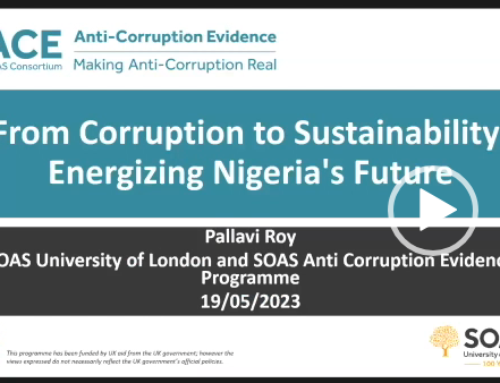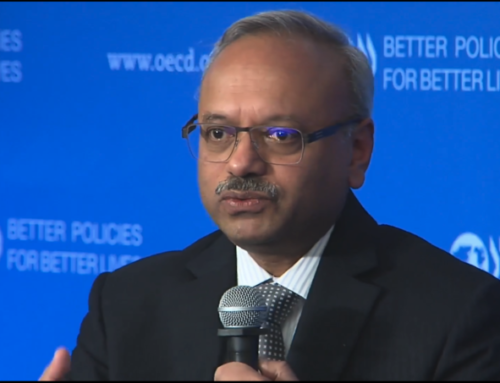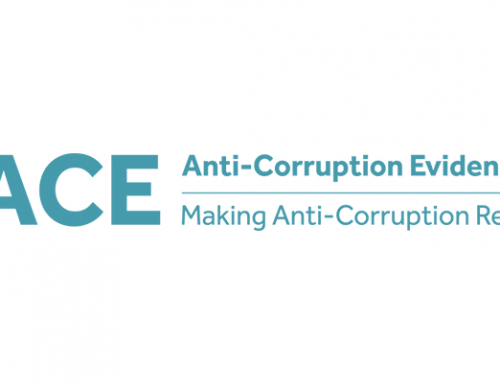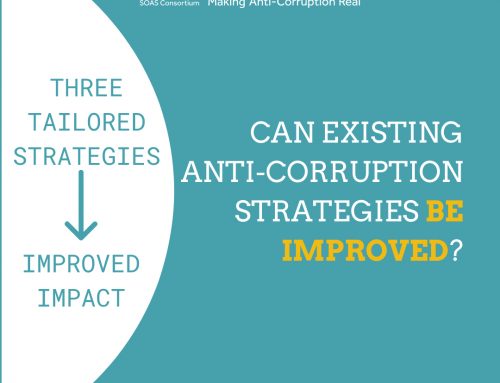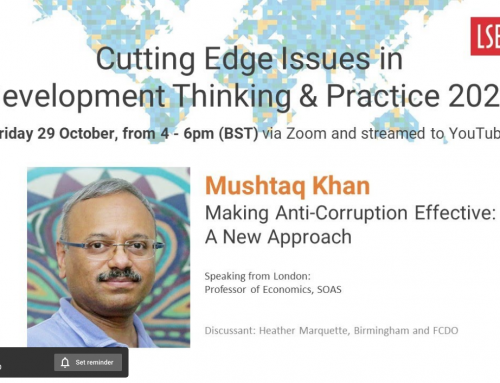About the webinar
The Economic and Financial Crimes Commission (EFCC) has been instrumental in prosecuting corrupt leaders, businessmen and recovering stolen funds. Anti-Corruption Evidence (ACE) research found 568 corruption prosecutions were completed by EFCC between 2010 and 2015.
The EFCC has been through many evolutions, from an organisation focusing on advance fee fraud, to one targeting high profile political corruption, and recently to aid in debt collection for large private sector actors. It has made significant efforts to address corruption through its investigation and prosecution activities, and in the recovery of huge assets. However concerns have remained regarding the effectiveness of the Commission – and particularly about its ability to remain independent from political interference. What does this mean for the EFCC in terms of its role as a premier law enforcement agency?
This webinar aimed to share the key findings of this research with relevant policymakers within Nigeria’s anti-corruption ecosystem to help drive the uptake of important judicial and procedural reforms and to restore public confidence in the Nigerian civil dispute settlement systems.
Speakers:
- Juliet Ibekaku-Nwagwu, Adviser to the President on Justice Reform/Founder JCI Project; Former Head, Financial Intelligence Unit, Nigeria
- Emilia Onyema, Professor in International Commercial Law, SOAS University of London
- Auwal Musa Rafsanjani, Executive Director, Civil Society Legislative Advocacy Centre
- Pallavi Roy, Research Director, Anti-Corruption Evidence Research Partnership Consortium (moderator)
Related publications
Charting the way forward for Nigeria’s Economic and Financial Crimes Commission: a path towards institutional efficiency and independence (Briefing Paper)
Nigeria’s Economic and Financial Crimes Commission: necessary reforms for an effective anti-corruption agency (Briefing Paper)


